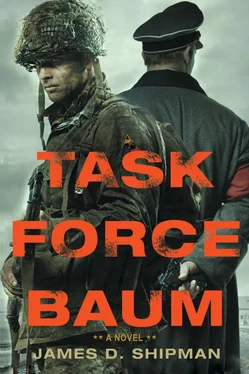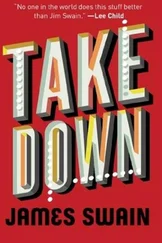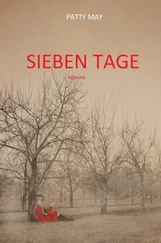What had happened? He didn’t know, but he had to get out of there. There was fire all around him. Flames and smoke. His ears rang, threatening to split his head open. He pulled himself up, pushing off the rubble; battling through the agony of his back, he rose to his knees and pushed off in a grimacing motion, pulling himself to a standing position. He limped and shambled out of a jagged hole in the barracks. He turned to stare at the building and realized what had happened. By some miracle, the barracks had sustained a shell that brought the roof down on top of them. He’d survived the crashing wood and material. He looked down and saw he was bleeding from dozens of wounds. His hands were a bloody mess. Still, the damage looked superficial. He needed medical attention badly, but he knew he would find nothing but death here. He had to return somehow to the main POW camp.
Curtis turned away from the barracks and realized the full chaos surrounding him. Smoke billowed from numerous buildings. The Kommandant ’s office had sustained a round and was burning out of control. He was shocked to see tanks dotting the field in front of the fence, cannons and machine guns blazing with barrels that all seemed to be aimed directly at him. Germans ran this way and that, rifles and machine pistols in their hands, screaming and firing at the attacking Americans.
Americans . The thought hit him. His friends were here to liberate them. But how would he survive the coming minutes before they captured the camp? He was on the German side of the fence, and he couldn’t run or hide. He needed help, and he had to get back to Waters and the rest of the men.
The gate. He had to get through the gate. He stared over, and to his surprise, the entrance into the POW camp was unguarded. He took a step, then another, fighting through his pain, limping and shuffling and willing himself toward the fence as bullets zipped by him and explosions rocked the camp. Yard after agonizing yard, he lumbered through the German camp. Each step was a miracle. He expected to be blown up or shot by either the attacking tanks or a German guard. Somehow, he kept going until he reached the gate itself. He rested for a few moments, leaning against a wooden crossbar for support before he lifted a rusted iron bolt and pulled open the latch. He expected to hear cries of protest, but the Germans seemed so busy with the defense of the Oflag that they were not paying attention to a lonely crippled kriegie, shuffling feebly back to his barracks.
Curtis made it through the fence and started toward the hospital building. He was still at least a quarter mile from the headquarters barracks. To his right, the tanks were looming ever closer, spitting fiery death into the camp as the Germans fought desperately to hold them back. He realized with irony that he was very likely to die at the hands of the Americans long before he made it to Waters. Still, he thought, better that than be executed by Knorr alone in the German barracks or killed by a German here in the yard. The hospital building grew larger with each impossible step. Bullets kicked up the frozen dirt a few steps in front of him, but he ignored them, concentrating on the faded red-and-white cross of the structure.
He made it to the near side of the hospital. He embraced the corner of the building, holding on for dear life, resting for a few moments to let air into his burning lungs. An explosion erupted to his right, and he glanced over. One of the Shermans was burning. The Germans had artillery somewhere and were fighting back. What if they stopped the attack when they were so close to freedom? That was beyond his control. For now, he had to simply survive.
A few minutes passed, and he felt strong enough to continue. He worked his way around the front of the infirmary, leaning against the wall and pushing himself along until he reached the far end. Now he could see the headquarters building. He’d half-expected Waters to be standing out on the porch, watching the battle, but there was nobody in sight. He was still on his own.
He gathered his courage and pushed off from the hospital, propelling himself a few steps toward the barracks. He risked a glance to his right. The Shermans were close to the fence now, perhaps less than fifty yards from it. Smoke filled the air around him, and ash fell like dirty snow. He took another step and another. He gathered his willpower. He’d never expected to make it this far. The front porch was twenty yards away, then ten. With a final gasping effort, he scurried in rapid steps, crashing against the stairs and clutching the rail, holding on as if he clutched a life preserver at sea. He lay there for a few moments and then started shouting as loud as he could.
* * *
He called again and again, but nobody came. He wasn’t sure he could be heard over the crashing battle around him. He would have to pull himself up and into the building. He was gathering his strength when the door opened. There was Waters, staring at him for a moment before recognizing the captain and rushing to his side.
“Curtis!” he shouted. “I thought you were dead!” He turned back toward the door. “I need help!” the colonel screamed. Several men scrambled out of the front door and rushed to his assistance, grabbing the captain’s arms and pulling him upright, walking him into the building. The door slammed behind them, scant protection from the shells and the bullets, but still, Curtis had made it. He was alive.
“Get him some water,” ordered Waters. The men led him to a nearby chair and lowered him carefully. “Do you want to lie down?” he asked.
Curtis shook his head. He’d been alone too long. Regardless of the pain, he wanted to be here with his people. “I’m okay for now, sir.” He was handed a cup of water, and he took it with shaking hands, gulping the dusty, lukewarm liquid. He hadn’t realized how thirsty he was. He finished the cup in an instant and was handed another. He drained that one too, and then he leaned back, shifting his position to try to minimize the pain in this back.
“Where the hell have you been?” asked Waters.
Curtis explained what had happened—Knorr, the roof collapse, the impossible journey back to the barracks. Waters listened, his eyes widening.
“Christ, son, it’s a miracle you made it back. Is Knorr dead?”
“No way to know. He wasn’t moving. I pray to God he’s gone.”
“Won’t make much difference one way or another now,” said the colonel. “We’ll be free any minute.” Waters spit. “If Knorr is alive, we’ll see who gets a bullet in the chest.”
Colonel Goode came over, bending down to look closely at Curtis. “You okay, son?”
“Just great,” answered Curtis, gathering a flicker of humor.
The POW commander chuckled. “Yeah, you look it.” He turned to Waters. “I think it’s time we do something, John.”
“What do you have in mind?”
“I think we need to send someone out with a white flag. The Americans need to know where we are, and I think the Germans might surrender if we give them just a little bit to think about.”
Waters stroked his chin, considering the idea. “You might be right.”
“Let’s put a group together. You have anyone in mind?”
Waters shook his head. “I’m not sending others. If anyone is taking the gamble, it will be me.”
“Can’t risk you. You know that. Pick a few of the boys, and I’ll see if I can scrounge up a white sheet to wave at them.”
Waters stepped closer to the colonel. “I’m going or nobody is,” he said with slow, measured words. Goode stared at his XO for a few moments.
The POW commander shrugged. “So be it, John. But you’re not going alone. Get a couple men together and get out there.”
Читать дальше












